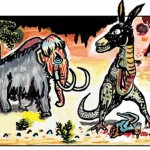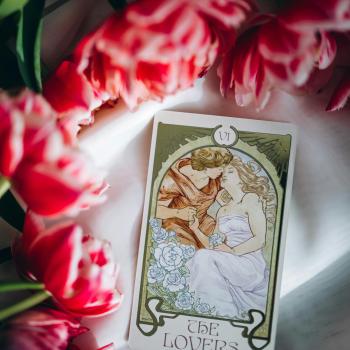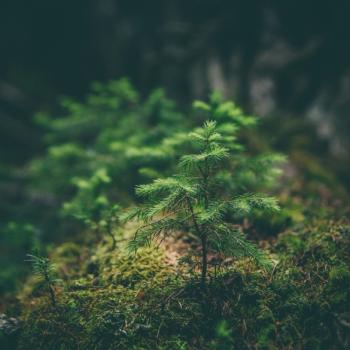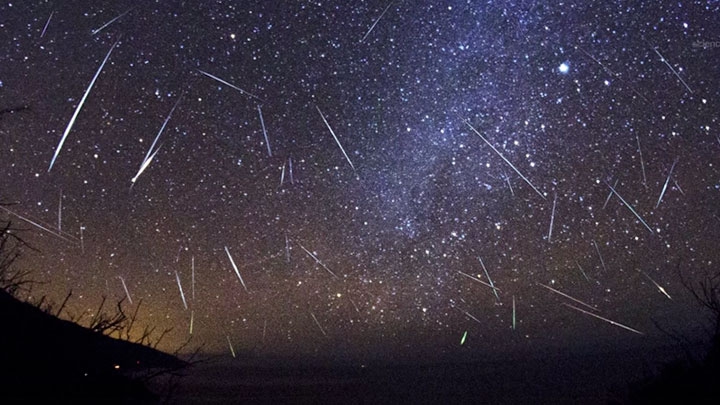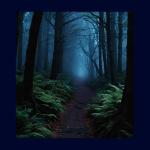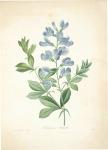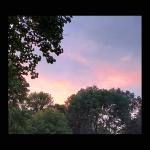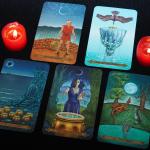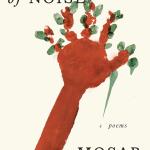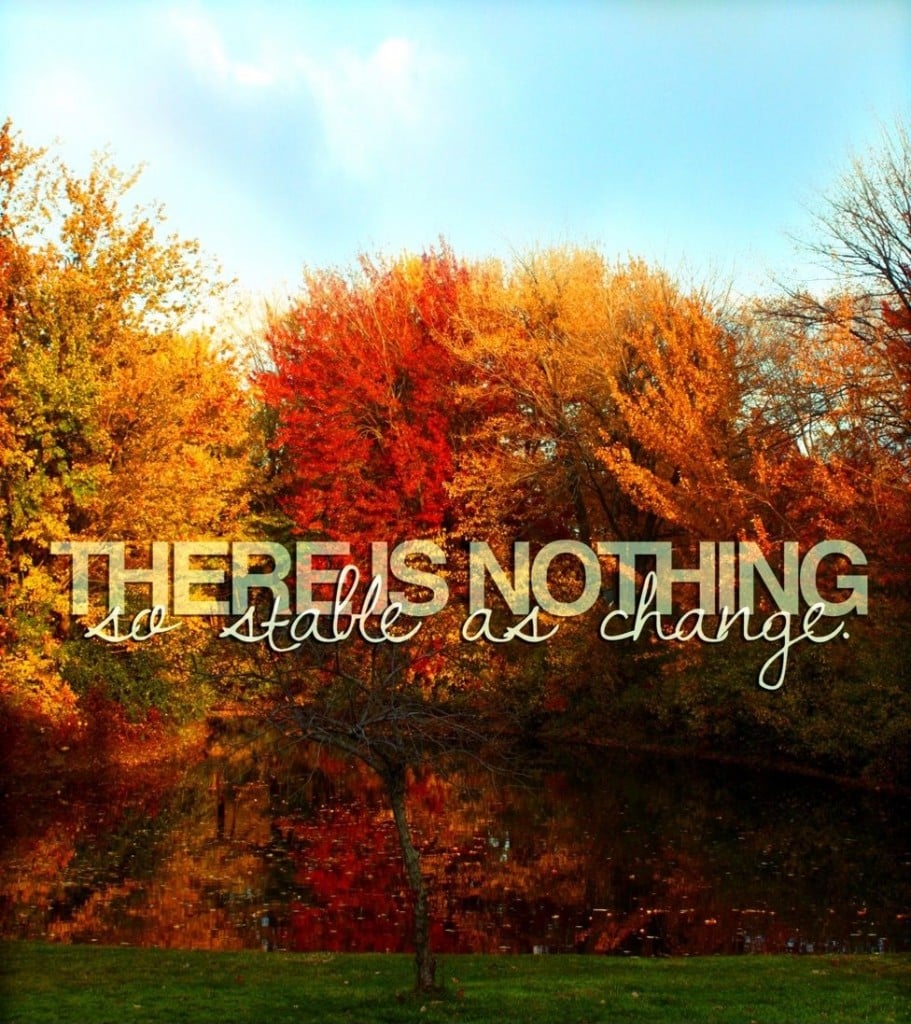 It’s the Autumn Equinox, and here in the Laurentia bioregion, autumn is upon us. A chill can be detected on the air in the evenings, though the days remain hot. And the faintest hints of color (other than green) can be found on some trees. By next week, we should be seeing real change.
It’s the Autumn Equinox, and here in the Laurentia bioregion, autumn is upon us. A chill can be detected on the air in the evenings, though the days remain hot. And the faintest hints of color (other than green) can be found on some trees. By next week, we should be seeing real change.
Of course, the seasons are always changing. But for some reason, the change from summer to autumn always feels the most dramatic to me. So it seems appropriate that Earthseed* should observe the Festival of Changes on this date. Today, we celebrate the first tenet of Earthseed — Godde** is Change.
Earthseed’s Book of the Living begins with this maxim:
All that you touch
You Change.
All that you Change
Changes you.
The only lasting truth
Is Change.
God
Is Change.
The Godde of Earthseed is literally Change — the one irresistible and undeniable force in the Universe. The Godde of Earthseed is the antithesis of what most people want from “God”: the absence of Change. Earthseed’s “gospel” is bad news for those who want only the status quo. But it can be good news for those are brave enough to embrace it.
The changing of the seasons calls to mind global climate Change, which transcends the familiar changing of the seasons. Today we are living in the midst of Change on a scale we have not witnessed as a species since the end of the last Ice Age. That Change brought about the birth of human civilization. This Change may very well end it.
One of the things we can do in response to climate Change is to challenge the myths which underlie the status quo — like the myth that things will always be the way they are now. Humanity’s paralysis over the impending environmental (and corresponding societal) collapse may be a function of the psychological power of this myth. It is seductively easy to believe in a changeless world — especially if we are privileged.
In fact, a measure of our privilege may be our ability to deceive ourselves about the reality of Change. It is the least privileged people who are least able to deny Change. But there really is no excuse for denial, at least among adults — either on a personal level, as we contemplate our individual deaths, or on the collective level, as we contemplate the future of our society and our species.
We will all die one day, and before we do, many of us — and definitely our children — will live to see radical changes in our environment and in our society. Godde is Change. Godde isn’t causing Climate Change, Godde is Climate Change. Realizing this may be the first step toward making the system-level changes which are needed to address the environmental disaster.
Our hope lies in the second tenet of Earthseed: Godde exists to shape, but also to be shaped. The Book of the Living teaches that, through shortsightedness and fear, a person will be Goddeʼs victim, Godde’s “prey”. But through learning and adaption, a person can become a partner of Godde, indeed, a Shaper of Godde.
Here are 19 ways you can Shape Godde and Shape Climate Change:
- Divest from fossil fuel investments and demand that any organization you are a part of do the same. Visit GoFossilFree.org to support local divestment campaigns.
- Work to get corporate money out of politics. Big Money, including Big Oil, drives our politics, including our environmental policies. Visit CommonCause.org or MoveToAmend.org and tell your lawmakers to support a constitutional amendment to reverse Citizens United.
- Vote responsibly. Visit OpenSecrets.org to find out where political candidates are getting their money. We need responsible citizens, as much, if not more, than we need responsible consumers.
- Educate yourself about the connection between climate change and capitalism. Read This Changes Everything by Naomi Klein.
- Use your privilege for the good. Ask yourself what resources you have that privilege affords you, including financial, material, social, educational, and emotional resources. Ask yourself what communities or networks you have access do by virtue of your privilege that others do not. And then find a way to use that access to protect the ecosystem.
- If you enjoy certain privileges, like being able-bodied and being able to afford a legal defense, consider participating in direct action, like a sit-in or blockade where you risk arrest, as a way to use your privilege to effect change. Or support those that do engage in direct action.
- Become an ecological voice in your community by organizing others for a direct action, a workshop, or petitioning your elected representatives.
- Learn effective ways to talk about climate change. Don’t rant or argue. Rather than memorizing statistics, use your own words. Speak from your experience. Talk about what matters to you in your life that is threatened by climate change. Practice radical empathy for climate change deniers.
- Visit Resilience.org and TransitionNetwork.org to learn how to build communities that are local, sustainable, and resilient — communities that find ways to meet their needs outside of the usual economic system.
- Support front line communities and communities of color which bear a disproportionate burden of climate change.
- Help fight the Sixth Great Extinction. Go to the U.S. Fish & Wildlife Service endangered species page to find out what species are endangered in our region and then find out what you can do, like planting milkweed for Monarch butterflies and opposing the use of pesticides that cause Colony Collapse Disorder in honey bees.
- Source what you consume. Choose a product that you use on a regular basis and find out what it is made of, where each ingredient comes from, how it is created, how it got to where you are, what happens to it when you are done with it, and what the environmental impacts are at each stage. Then ask yourself whether you really need the product or if there are alternatives that are better.
- Change your relationship with food. Industrial agriculture is one of the largest manufacturers of greenhouse gases. Eat green. Eat local. Reduce food waste. Reduce or eliminate meat consumption.
- Have fewer children. And support ways to keep our human population below the carrying capacity of the planet that do not unfairly burden the poor and underprivileged, like programs that provide easy access to voluntary birth control, and equal access to education and work for women.
- Reconnect with nature. “Saving the earth” can seem remote if you have no experience of the actual land around you. Find out where you are. Learn to identify the plants and other-than-human animals that you share the land with.
- Create art, music, poetry, and fiction which challenge the myths that underlie the status quo and help us imagine a new kind of society.
- Let yourself grieve. Grief is not the same thing as despair. Grief is a natural and healthy reaction to the human desecration of the earth. Avoidance of grief leads to the repression and conspicuous consumption that is the status quo.
- Take care of yourself. Beware of burnout. Don’t forget to breathe. Drink lots of water. Keep coming back to that which sustains you, by whatever name you call it. Recognize that the climate crisis is complicated, and no one person is going to solve it by themselves.
- But also recognize that you only have one life, that you have more power than you realize, and there is a grace and a joy that comes from using that power for something bigger than yourself.
Notes:
* Earthseed is a real religion based on the science fiction of Octavia Butler, especially her Parable series. Butler was one of the first African-American science fiction writers, and one of the first women to break the science fiction gender barrier. Butler’s Parable of the Sower (1993) and Parable of the Talents (1998) tells the story of the struggle of the Earthseed community to survive the socioeconomic and political collapse of twenty-first century America due to poor environmental stewardship, corporate greed, and the growing gap between the wealthy and the poor. The books describe a new religion called “Earthseed,” founded on the concepts that God is Change, that we can Shape God, and that the Destiny of Earthseed is to take place among the stars. The novels contain excerpts from a fictional book of scripture called, “The Book of the Living,” which is authored by the protagonist, Lauren Olamina, and sets forth Earthseed’s theology, ethics, and vision for the future.
** “Godde” is a gender-inclusive term, more or less synonymous with “God”, but without the patriarchal implications of that term. “Godde” includes “God” and “Goddess”, while also transcending gender.


